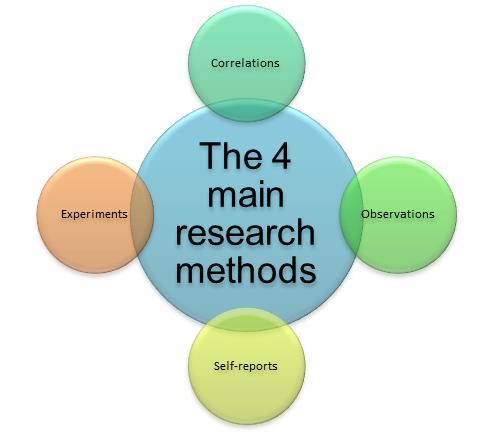
Psychology is the scientific study of the brain and behaviour. Investigations need to be scientific. Psychologists want their ideas/theories to be:
Because we often investigate things we cannot physically see (memories, dreams, fears, plans, love), psychologists have to be very careful when planning their investigations.
Psychologists use a range of ways to carry out scientific investigations these are known as research methods. We look at four research methods:
Experiment – Description
Self-Report – Description
Observation – Description
Correlations – Description
- Tested and agreed with by other people.
- Applicable to lots of people all over the world.
- Useful and beneficial to others.
Because we often investigate things we cannot physically see (memories, dreams, fears, plans, love), psychologists have to be very careful when planning their investigations.
Psychologists use a range of ways to carry out scientific investigations these are known as research methods. We look at four research methods:
- Experiment
- Self-report
- Observation
- Correlation
Experiment – Description
- Can manipulate one variable and keep everything else the same.
- Allocate participants into groups.
- If the groups behave differently then you know it’s the thing you have manipulated (IV) that caused the different result (DV), as everything else was kept the same.
Self-Report – Description
- Can ask people how they think and behave.
- Can conduct interviews or fill in questionnaires.
- Psychologists collect the data and make conclusions about how people think and behave.
Observation – Description
- Can watch how they behave.
- Focus on their observable behaviour.
- Gather data and make conclusions based only on what you can observe.
Correlations – Description
- Sometimes it is unethical to split people into different groups and treat them differently (purposefully neglect a group of children).
- Sometimes it is impractical or impossible to manipulate the variables (make one group rich and one group poor).
- Sometimes all we can do is measure two characteristics in a group and see if there is a relationship between the two.



